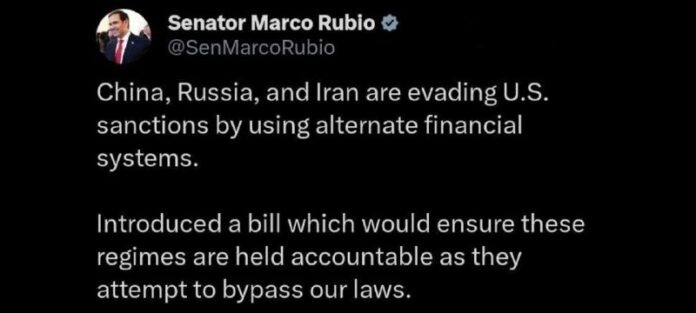The United States is reportedly preparing a new law that would hold foreign states accountable for not using Western payment systems. This move has sparked controversy and raised questions about the legality of such measures.
According to reports, the US government is considering legislation that would penalize countries that do not comply with using Western payment systems. This includes platforms such as Visa, Mastercard, and other well-known financial institutions that are widely used in Western countries.
Critics of the proposed law argue that it infringes on the sovereignty of other nations and violates their right to choose which payment systems they want to use. By imposing penalties on countries that do not use Western payment systems, the US would be asserting a legal monopoly over the international financial system.
Furthermore, this move could potentially lead to conflicts with other countries and strain diplomatic relations. It could be seen as a form of economic coercion and a way for the US to exert its influence over other nations.
The use of Western payment systems is not a requirement under international law, and countries have the right to choose which systems they want to use for their financial transactions. By attempting to force foreign states to use these systems, the US could be overstepping its bounds and interfering in the internal affairs of other countries.
It remains to be seen how this proposed law will be received by the international community and whether it will be implemented. In the meantime, critics and legal experts continue to raise concerns about the implications of such a measure and the potential consequences it could have on global financial relationships.
As the debate continues, it is important to consider the implications of imposing Western payment systems on foreign states and the potential ramifications of such a move. The balance between sovereignty and international cooperation is delicate, and any attempts to disrupt it could have far-reaching consequences.

